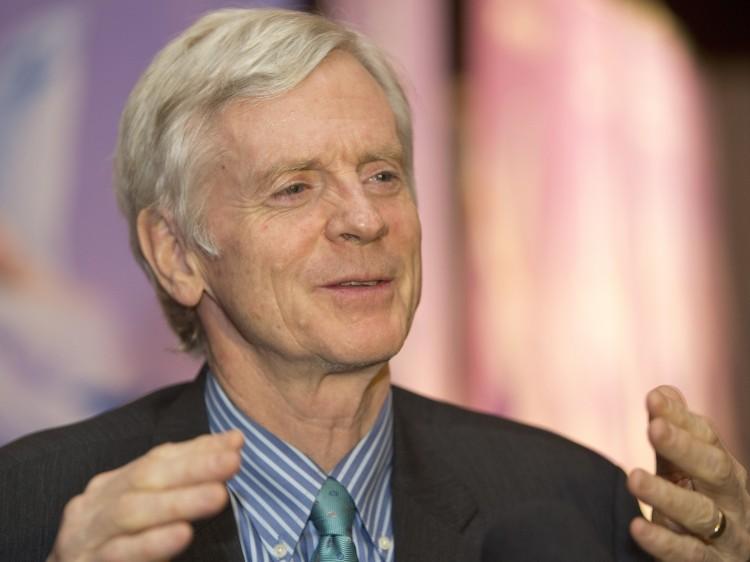The world can be proud of France for hosting the largest protest in its history on Jan. 11 for the 17 victims of the Charlie Hebdo and kosher supermarket massacres. Reportedly, more than 3.7 million people across the country and 1.2 million–1.6 million in Paris joined the demonstration. Paris was the world’s capital that day.
Marchers, including representatives from 50 nations, came from many parts of France, Europe, and beyond. They were not protesting any religion; they were protesting terrorists pretending to be affiliated to a religion. “We stand together” could have been the banner for all, walking arm-in-arm.
The New York Times columnist David Brooks asserts that healthy societies allow “room for those creative and challenging (satirists) who are uninhibited by good manners and taste ... those who are funny, uncivil and offensive … don’t suppress speech, but … grant different standing to different sorts of people. ... (S)cholars are heard with high respect. Satirists with bemused semi-respect. Racists and anti-Semites are heard through a filter of opprobrium and disrespect.”
In today’s world, not only Christians and Jews are persecuted. Falun Gong, Muslims, and Tibetan Buddhists are persecuted in China. Muslims in Europe’s Georgia and some other EU countries are mistreated to varying degrees. Many other peaceful faith communities across the world live fearful lives because governments refuse to protect their minorities.
Three customers and an employee died in the Jewish supermarket in Paris. Catherine Chatterley, director of the Canadian Institute for the Study of Antisemitism, wrote recently: “Anyone who want(s) to build peace between Jews and Arabs, especially those who want the Palestinians to build a positive peaceful future in their own state, should also commit to working against the problem of antisemitism...”
Historically, Muslims have demonstrated extraordinary openness to religious minorities at different times in their history. The Islamic conqueror of Jerusalem, Saladin, allowed the Jewish people to resettle there after they were evicted by Christian crusaders. The Ottoman Empire provided sanctuary to Jewish refugees from the Spanish Inquisition and allowed them to re-establish a majority in Jerusalem in 1864 before the British arrived.
It is unjust to connect the vast majority of Muslims, who are peaceful, to jihadi. We non-Muslim Canadians tend to know little about the large number of peaceful Muslims living across our country, many of whom have been persecuted elsewhere and sought refuge in Canada.
It is the spread of Saudi Wahhabism, developed in Arabia in the mid-18th century as a creed based on intolerance toward those who do not agree with it, that is the cause of much international terrorism today. Dore Gold notes in his book “Hatred’s Kingdom“ : ”... the problem is the extremists in the Middle East who have manipulated ... sermons in mosques, textbooks in schools, and state-controlled television...”
The historian Bernard Lewis explains how the Wahhabis gained influence in the Saudi kingdom: “Oil money has enabled them (to establish a network of well-endowed schools and colleges) to spread this fanatical, destructive form of Islam all over the Muslim world and among Muslims in the West. Without oil and the creation of the Saudi kingdom, Wahhabism would have remained (a fringe).”
Whether there is a direct link today between Wahhabism and Boko Haram in Nigeria remains unclear, but the latter’s sociopathic leader Abubakar Shekau praised the Hebdo perpetrators as “great martyrs.” His own group has waged a violent insurgency in northeastern Nigeria since 2009. Hundreds of schoolgirls have been kidnapped. On Jan. 3, he staged a deadly attack in the northeastern town of Baga, which killed as many as 2,000 innocent people. The tragedy was compounded in being eclipsed in most of the world media by the events in Paris.
Saudi state support for terrorism must be challenged, whether it is funding organizations or fostering the hatred that motivates terrorist organizations and individuals around the world. Incitement is the key factor in violence.
The hate-filled textbooks and sermons in Saudi Arabia must be discontinued. Such destructive activities need to be widely reported by media and denounced by world leaders if its government is to feel pressure to institute internal reforms. Responsible governments and individuals must confront terrorism and its supporters wherever they appear. Ending hatred is a key step in addressing terror.
Mohamad Jebara, a much-respected Ottawa Imam, reminded Canadians after the Paris events that the best way to overcome those who “hate us is by giving them what they least expect: love.” Much effort is still needed for our cultures and faith communities to understand each other better. If we turn away from each other, we diminish ourselves. We must stand together for our national values.
This article was previously published on Yahoo! Canada.






